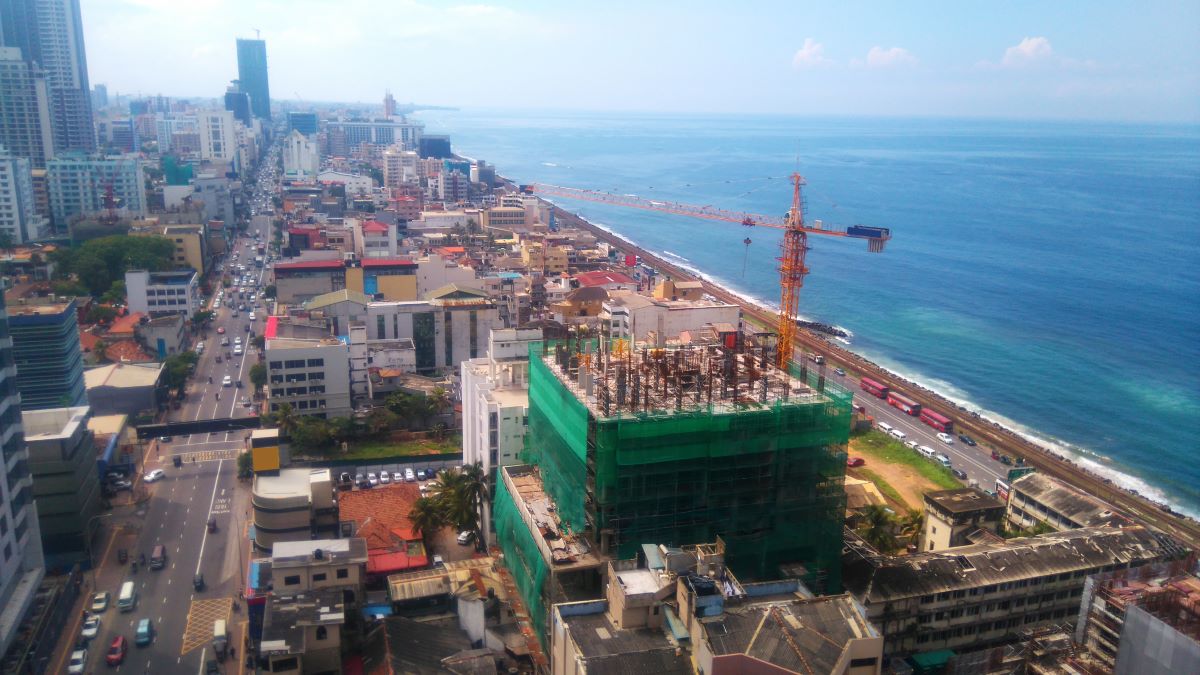In a significant development, the International Monetary Fund’s (IMF) Sri Lanka bailout plan hit a roadblock in September 2023. Following the visit of IMF officials to Sri Lanka this month, the first review of its bailout package failed to reach a staff-level agreement. Consequently, any further financial assistance from the global lender to the island nation has been put on hold indefinitely.
IMF, while acknowledging some signs of stabilisation in Sri Lanka, expressed concerns about the country’s ability to achieve a full-scale economic recovery. It had previously approved a bailout package of around $3 bn to Sri Lanka in March 2023, aimed at rejuvenating its struggling economy.
Peter Breuer, IMF’s Senior Mission Chief for Sri Lanka, emphasised that the release of the second tranche of the total bailout package of $3 bn, would depend on securing a staff-level agreement. Notably, there is no specific timeline for achieving this agreement.
“The people of Sri Lanka have shown remarkable resilience, and the authorities have made significant progress on important reforms. Discussions will continue towards reaching a staff-level agreement in the near term that will maintain the reform momentum needed to allow Sri Lanka to emerge from its deep economic crisis,” said the IMF.
What led to the crisis?
According to the Observer Research Foundation, as of 2021, Sri Lanka’s tax revenue was just 9.6% of GDP, against the expenditure of nearly 20% of GDP. Dismal revenue performance resulted in a decline in the government’s expenditure-to-GDP ratio and led to deficit financing.
In 2022, Sri Lanka made history by becoming the first Asia-Pacific nation to undergo a foreign debt default in more than twenty years. This dire situation arose due to a significant depletion of its foreign reserves, setting off widespread protests and severe shortages of essential goods such as fuel and medicine.
According to a survey by the United Nations Development Programme conducted in 2022 and 2023, 55.7% of the Sri Lankan population, or nearly 12.34 million people, are vulnerable across various dimensions due to the economic crisis.
Sri Lanka’s witnessed an economic improvement
While Sri Lanka’s IMF bailout has been paused, the nation’s economic landscape has exhibited improvements from last year in recent months. Sri Lanka’s inflation rate dropped to less than 2% in September, a significant improvement from 2022, when it peaked at 70%. Concurrently, the country’s currency experienced a positive shift, appreciating by approximately 12% during this period.
Furthermore, Sri Lanka’s gross international reserves saw a substantial increase of $1.5 bn between March to June 2023. Shortages of essential goods also eased, providing relief to the population. Despite these positive trends, the IMF cautioned that revenue collection, though improved compared to the previous year, was anticipated to fall short of initial projections by nearly 15% by year-end.
Meanwhile, the Sri Lankan government unveiled a plan earlier in 2023 to exchange around $10 bn worth of defaulted local debt for new bonds. The country has also engaged in extensive discussions with bondholders and bilateral creditors, including Japan, China, and India, in an attempt to rework its foreign debt.
Experts point to the tax cuts enacted by Sri Lanka’s former president, Gotabaya Rajapaksa, behind falling revenues last year, further exacerbating the country’s economic crisis. Following Rajapaksa’s tenure, his successor, Ranil Wickremesinghe, has implemented tax increases. However, the IMF contends that these measures have fallen short.
“To increase revenues and signal better governance, it is important to strengthen tax administration, remove tax exemptions, and actively eliminate tax evasion,” opined the global lender.










 Australia
Australia China
China India
India Indonesia
Indonesia Japan
Japan Malaysia
Malaysia Philippines
Philippines Singapore
Singapore South Korea
South Korea Taiwan
Taiwan Thailand
Thailand Vietnam
Vietnam
 Germany
Germany Hong Kong
Hong Kong USA
USA Switzerland
Switzerland Singapore
Singapore United Kingdom
United Kingdom








